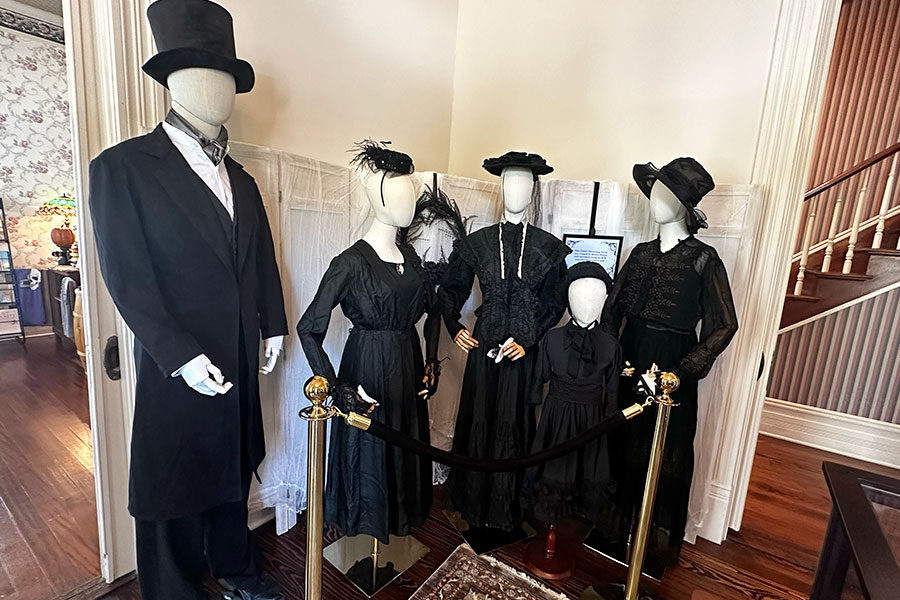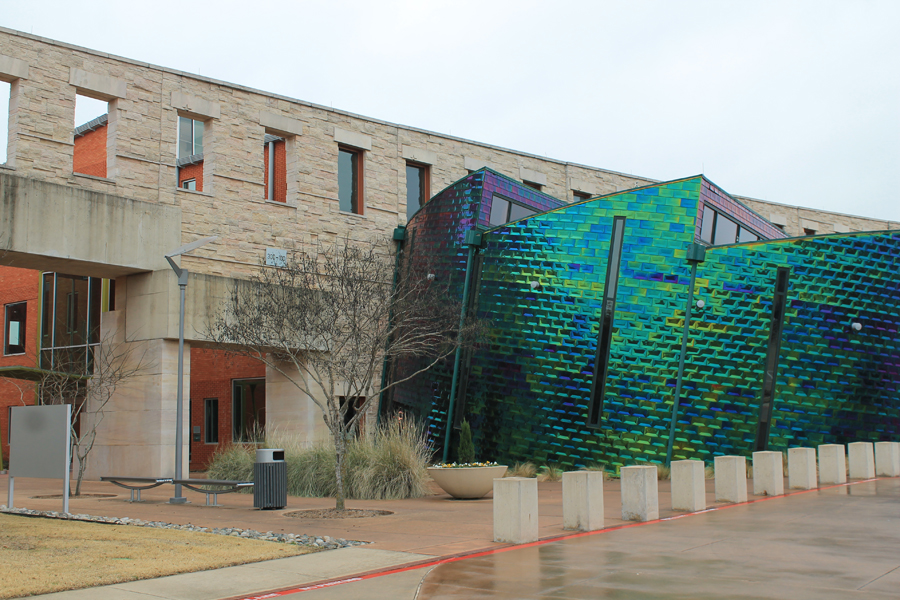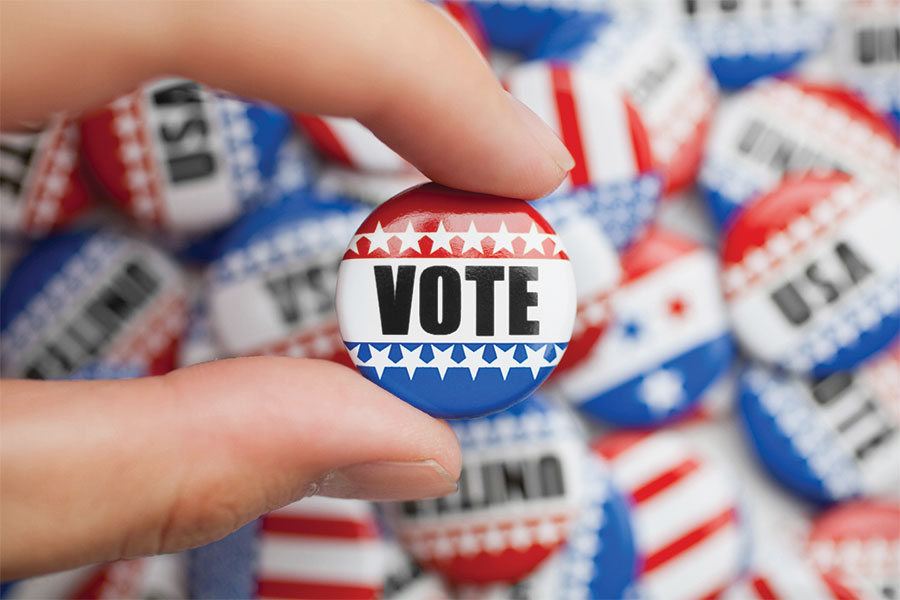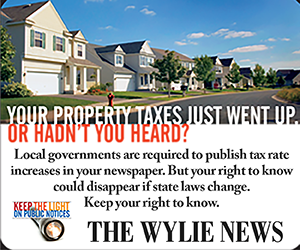The following information was provided by Texas State Representative Jodie Laubenberg, District 89.
TEXAS CONSTITUTIONAL AMENDMENT ELECTION 2015
Proposition 1, SJR 1:
Increasing the Homestead Exemption
The Ballot Will Read: “The constitutional amendment increasing the amount of the residence homestead exemption from ad valorem taxation for public school purposes from $15,000 to $25,000, providing for a reduction of the limitation on the total amount of ad valorem taxes that may be imposed for those purposes on the homestead of an elderly or disabled person to reflect the increased exemption amount, authorizing the legislature to prohibit a political subdivision that has adopted an optional residence homestead exemption from ad valorem taxation from reducing the amount of or repealing the exemption, and prohibiting the enactment of a law that imposes a transfer tax on a transaction that conveys fee simple title to real property.”
Summary: This constitutional amendment will increase the school district property tax homestead exemption from $15,000 to $25,000. Approval of the ballot measure will also provide for the reimbursement by the state to school districts for their revenue loss resulting from the $10,000 increase. This ensures that school districts are not affected by the increase in the exemption.
Supporters: This measure will provide homeowners with an increased homestead exemption, thus lowering their property taxes. Reducing the school property tax burden enables homeowners greater ability to maintain home ownership.
Opponents: The increase in the school district homestead exemption will provide only nominal property tax relief for homeowners. Increases in appraisals and local school tax rates may mean that no actual reduction in property taxes occurs, merely a reduction in the rate of growth of property taxes.
Proposition 2, HJR 75:
Tax Exemptions For Surviving Spouses Of Certain Disabled Veterans
The Ballot Will Read: “The constitutional amendment authorizing the legislature to provide for an exemption from ad valorem taxation of all or part of the market value of the residence homestead of the surviving spouse of a 100 percent or totally disabled veteran who died before the law authorizing a residence homestead exemption for such a veteran took effect.”
Summary: In 2009, the citizens approved a constitutional amendment providing a homestead exemption for 100 percent or totally disabled veterans. In 2011, a constitutional amendment passed extending the disabled veterans homestead exemption to the surviving spouse upon the veteran’s death, provided that the surviving spouse did not remarry and retained the homestead as the primary residence. Current law has been interpreted to apply the exemption only to a surviving spouse of a disabled veteran who died after the 2009 law took effect. Prop 2 would extend the homestead exemption to the surviving spouse of a disabled veteran who would have qualified for the exemption under the 2009 law but died before the law took effect.
Supporters: Proposition 2 provides valuable tax relief to the families of deceased disabled veterans. Any fiscal impact on a single taxing district would be minimal, but the impact on individual families of totally disabled veterans would be considerable. Current law unintentionally creates two classes of surviving spouses of totally disabled veterans – those whose spouses died on or after January 1, 2010, and those whose spouses died before that date. Those whose spouses died in 2010 or after receive a full property tax exemption on their homesteads, but those whose spouses died before that date do not inherit eligibility because the exemption was not in effect before the veteran died. This is arbitrary. Prop 2 provides a lasting form of appreciation to families who have sacrificed a great deal.
Opponents: Proposition 2 will reduce the revenue available to school districts, municipalities, counties, and other special taxing districts, such as hospital districts, and impose corresponding costs on the state. The purpose of the original exemption for surviving spouses of disabled veterans, which took effect in 2011, was to relieve spouses of a sudden increased tax burden brought on by the death of their spouse. The Constitution should not be amended to make eligible for the exemption spouses who never experienced a sudden increase because the veterans to whom they were married died before the exemption was in effect.
Proposition 3, SJR 52:
Removing the Requirement that Certain Statewide Officials Reside in Austin
The Ballot Will Read: “The constitutional amendment repealing the requirement that state officers elected by voters statewide reside in the state capital.”
Summary: The Texas Constitution requires that certain statewide office holders shall reside in the state’s capital city of Austin. This applies to the offices of comptroller, land commissioner, attorney general, and any statutory state officer who is elected statewide. It was adopted as part of the 1876 Texas Constitution. Prop 3 will remove that residency requirement.
Supporters: The residency requirement is long since outdated as a result of modern transportation and communications technology. Removing this requirement will allow greater flexibility for statewide elected officials and reduce the burden this requirement places on the officials and their families.
Opponents: While transportation and technology have advanced considerably since 1876, the need that our statewide officials reside in Austin has not changed. State officers serve as the chief operating officers for their respective state agencies, which are headquartered in Austin. State officers are often required to conduct statewide business at the seat of government, and residency in a location other than Austin would likely increase the state-reimbursed travel expenses of the officers.
Proposition 4, HJR 73:
Permitting Certain Charitable Foundations to Conduct Charitable Raffles
The Ballot Will Read: “The constitutional amendment authorizing the legislature to permit professional sports team charitable foundations to conduct charitable raffles.”
Summary: Support of this measure will allow professional sports team charitable foundations to conduct a charitable raffle during each home game and to offer to a randomly selected winner a cash prize that does not exceed 50 percent of the raffle’s gross proceeds. All raffle proceeds, other than cash prize payments and operating expenses, will be required to be used for the foundation’s charitable purposes. Prop 4 also provides criminal penalties for certain violations and authorizes injunctions against unauthorized raffles.
Supporters: Proposition 4 will provide Texas’ professional sports teams with another tool to raise funds to support their charitable causes. While current law allows raffles for charitable purposes, restrictions in the Constitution prevent charitable foundations of sports teams from making full use of a popular type of raffle to raise money for their youth sports, education and community programs. Given the large and supportive crowds at professional sporting events, these raffles have the potential to greatly increase revenue raised by foundations to support their worthwhile charitable programs.
Opponents: Proposition 4 could expand gambling in Texas by increasing the number of charitable raffles that certain groups can conduct and by allowing the groups to offer cash prizes. The changes proposed in the amendment and its enabling legislation will alter the rules designed to keep raffles to occasional games that award non-cash prizes and that funnel all proceeds to charity. These changes could open the door to other groups asking for expanded authority to offer such raffles. Raffles authorized under Proposition 4 could compete with existing charitable raffles and divert funds that would have gone to other worthy causes.
Proposition 5, SJR 17:
Increasing the Population Threshold for Small County Road Works
The Ballot Will Read: “The constitutional amendment to authorize counties with a population of 7,500 or less to perform private road construction and maintenance.”
Summary: A 1980 provision in the Texas Constitution governs the maximum population of a county allowed to build and maintain private roads. Currently, only counties with a population of 5,000 or less may build and maintain private roads if the county imposes a reasonable charge for the work. This is to prevent all counties in the state from competing with private industry. Prop 5 increases the population cap from 5,000 to 7,500 based on the most recent federal census.
Supporters: Small counties in Texas have grown since the 1980 constitutional restriction, and the Constitution should be updated to reflect population growth over the past 35 years. The proposed amendment will give counties and private landowners more flexibility to update roads that have been poorly maintained because many small counties rarely have private contractors available to do the work. Poorly maintained roads create public safety hazards for citizens and emergency services. Private landowners still would have the flexibility to hire a private company instead of the county if they choose to do so. In small counties there are few private industries with which to compete and it is not profitable for outside companies to contract for minor projects in such counties.
Opponents: Instead of increasing the maximum population threshold for counties allowed to perform private road work, the population limit should be eliminated. All counties in the state should have the option to construct and maintain private roads in the county as long as private landowners agree and pay the county for the cost of the work.
Proposition 6, SJR 22:
Establishing a Constitutional Right to Hunt and Fish
The Ballot Will Read: “The constitutional amendment recognizing the right of the people to hunt, fish, and harvest wildlife subject to laws that promote wildlife conservation.”
Summary: The proposed amendment will provide that hunting and fishing are preferred methods of managing and controlling wildlife. Under the proposed amendment, people will have the right to hunt, fish, and harvest wildlife, including by the use of traditional methods. The right will be subject to laws or regulations to conserve and manage wildlife and preserve the future of hunting and fishing. Proposition 6 will not affect laws on trespass, property rights, or eminent domain or the power of the Legislature to authorize a municipality to regulate the discharge of a weapon in a populated area in the interest of public safety.
Supporters: Proposition 6 will constitutionally guarantee the right of Texans to hunt, fish and harvest wildlife. While Texas has a rich and vibrant hunting and fishing tradition, animal rights and anti-hunting organizations in other states have worked to limit hunting through onerous bag limits or by eliminating the hunting of certain types of game. To guard against such restrictions, many states already have passed right-to-hunt-and-fish amendments. Proposition 6 will ensure that Texas’ long-standing heritage of hunting and fishing is protected for future generations.
Opponents: Proposition 6 is unnecessary because there is no immediate threat to hunting and fishing in Texas. While the right to hunt, fish and harvest wildlife under Proposition 6 will be “subject to laws or regulations to conserve and manage wildlife and preserve the future of hunting and fishing,” there could be confusion in interpreting this provision. Texas has large nongame wildlife populations, including endangered and threatened species. Hunting and fishing of many of those species would not be appropriate and in some cases is prohibited by state and federal law.
Proposition 7, SJR 5:
Dedicating A Portion of Sales Tax Revenue to the State Highway Fund
The Ballot Will Read: “The constitutional amendment dedicating certain sales and use tax revenue and motor
vehicle sales, use, and rental tax revenue to the state highway fund to provide funding for non-tolled roads and the reduction of certain transportation-related debt.”
Summary: Proposition 7 will direct up to $2.5 billion of any sales tax proceeds in excess of $28 billion to the state highway fund in each fiscal year starting with fiscal 2018 and ending with fiscal 2032. It will also direct 35 percent of any motor vehicle sales, use and rental tax proceeds in excess of $5 billion to the state highway fund in each fiscal year starting with fiscal 2020 and ending with fiscal 2029. These funds could be used only to construct, maintain, or acquire rights-of-way for roads other than toll roads or to repay bonds issued by the Texas Transportation Commission.
Supporters: Proposition 7 will provide a steady, consistent funding source for transportation projects across the state by dedicating a portion of two types of existing taxes to the state highway fund.
Opponents: Opponents argue that dedicating such large percentages of state tax revenue to transportation will strain state finances, tie the hands of future legisla
















0 Comments